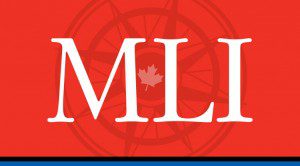 Defending Canadian sovereignty in the 21st century must involve deepening Canada’s engagement with like-minded partners in the Indo-Pacific, writes Kerry Lynn Nankivell.
Defending Canadian sovereignty in the 21st century must involve deepening Canada’s engagement with like-minded partners in the Indo-Pacific, writes Kerry Lynn Nankivell.
This column is based on Nankivell’s recent MLI commentary on deepening Canada’s ties to the Indo-Pacific region.
By Kerry Lynn Nankivell, May 12, 2017
The Indo-Pacific is undergoing profound transformation. So far, Canada’s foreign and defence policy appears not to recognize that fact.
Planners have identified Canada’s enduring security priorities: (1) to defend Canada and Canadian sovereignty; (2) to safeguard and defend North America; and (3) to contribute to international security.
Yet how does a transforming Indo-Pacific fit within this paradigm?
First, with the digitization of the Canadian economy, Canada’s relative invulnerability to foreign threats has changed. Today, Canada is one of the most cyber-enabled economies in the world. Yet this also made the country vulnerable to non-traditional threats, from cyber-crime to cyber-espionage and disinformation operations.
Defending Canada and Canadian sovereignty in this new age must include deepening Canada’s engagement with like-minded partners in the Indo-Pacific. These alliances will help to counter apologists for state-based malicious activity in cyber-space.
Canadian military personnel stationed abroad may need to be beefed up, its intelligence agencies focused more on illicit cyber-activity, while contributions to protect physical networks and assets located abroad may be required.
Defending Canada and Canadian sovereignty in this new age must include deepening Canada’s engagement with like-minded partners in the Indo-Pacific.
Second, Canada’s space capabilities are a strong pillar of North American defence, especially with the deployment of the RADARSAT Constellation Mission in 2018. Yet Indo-Pacific security developments should prompt Canada to consider new applications of that capability.
North Korea has conducted an unprecedented 37 missile tests in the last twelve months, including a successful submarine-based ballistic missile launch in 2016 and failed (possibly disrupted) test of an anti-ship ballistic missile in April 2017. Pyongyang plans to develop an intercontinental ballistic missile that can reach North America.
As a result, satellite coverage of the maritime approaches to North America, which could be used to detect incoming missiles, will be placed at new premium. Options might include increasing the number of satellites dedicated to providing security services or ensuring Canadian-provided data is shared with like-minded partners, such as South Korea and Japan.
It may even include re-visiting ballistic missile defence (BMD). While previous public debates have yielded only lukewarm support, current threats suggest the issue warrants re-examination. Indeed, available systems boast diminishing costs, increased accuracy, and wider international support, including among Japan and the Republic of Korea (ROK).
Meanwhile, Russian and likely increased Chinese activities in the Arctic revives the prospect of NORAD refocusing to monitor, surveil, and control ballistic missile submarine (SSBN) activity there.
Russia’s persistent presence in the Arctic Ocean is well known. Less noted has been China’s development of Jin-class SSBNs as part of its nuclear deterrent. With these vessels, China could use the Arctic Ocean to hold both the US and Japan at risk, with obvious implications for NORAD.
Canada would be wise to revive its anti-submarine warfare (ASW) capability in the Arctic and northern Pacific approaches, as well as its aerial and space-based monitoring capabilities to provide early maritime warning. In today’s world, Canada must soberly assess the long-term viability of its submarines and update its ASW policy, including possibly stationing assets abroad.
Third, Canada may be tempted to redouble investments in NATO and the US. Yet NATO is caught up in internal political battles, while the US is deeply ambivalent about multilateral arrangements, including NATO. A better return on investment may be found in the Pacific, where a diplomatic contest to re-write international order is vigorously under way.
Recalibrating Canada’s foreign and defence policy will not alter its long-standing security priorities.
Many of Asia’s most important trading states, including Japan, ROK, Singapore, and Malaysia, remain committed to a rules-based, open trading regime. China is also a source of opportunity for Canada. If Canada wishes to hold China to account on intellectual property rights, environmental sustainability, and transparency in investor markets, doing so will require help from like-minded states.
In the military sphere, Canada can and should identify opportunities to train, exercise, and operate with partners like Japan, the ROK, Singapore, Australia, or India. Canada can coordinate with Washington here, but it need not – at times it may be better for Canada to operate independently of its traditional US ally.
Canada has a place in Asia. Recalibrating Canada’s foreign and defence policy will not alter its long-standing security priorities. But carrying out that policy at a time of Indo-Pacific transformation requires that Canada creatively re-appraise its international engagement, with careful and thoughtful attention to the region.
Kerry Lynn S. Nankivell is professor at the Daniel K. Inouye Asia-Pacific Center for Security Studies in Honolulu. The views expressed in this article are the author’s alone. They do not represent the official policy of US Pacific Command, the Department of Defense or the Government of the United States.





